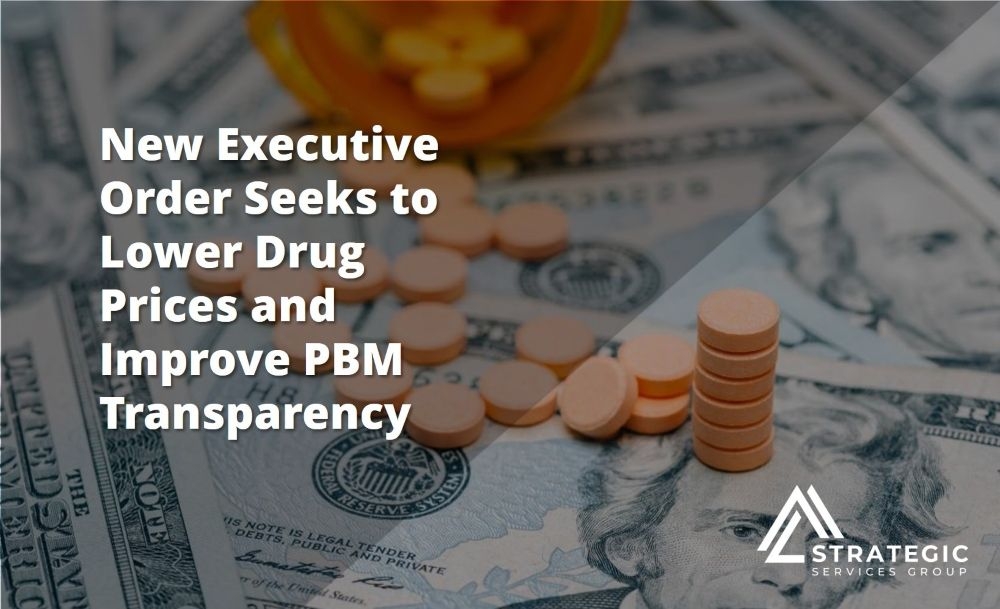New Executive Order Seeks to Lower Drug Prices and Improve PBM Transparency

On April 15, 2025, President Donald Trump issued an executive order (EO) that directs his administration to take a wide range of actions to lower prescription drug prices for patients in the United States. Notably, the EO directs the U.S. Department of Labor (DOL) to propose regulations improving employer health plan fiduciary transparency into the direct and indirect compensation received by pharmacy benefit managers (PBMs). These reforms are anticipated to take time to implement and may not immediately lower drug costs.
Highlights
- On April 15, 2025, Trump signed an EO aimed at lowering prescription drug prices.
- The EO includes a variety of directives related to the Medicare program and pharmaceutical industry.
- It also directs the DOL to propose regulations improving PBM fee transparency.
- The directives may not have an immediate impact on drug costs, as they will take time to implement.
PBM Transparency
The Employee Retirement Income Security Act (ERISA) includes standards of conduct for those who manage employee benefit plans and their assets, who are called fiduciaries. Under ERISA’s strict fiduciary standards, employers must prudently select and monitor their third-party service providers, including PBMs. Scrutiny of the PBM industry has intensified lately due to concerns over drug costs, lack of transparency and employee lawsuits alleging mismanagement of their prescription drug benefits.
Although an increasing number of states have passed laws regulating PBMs, there is minimal federal oversight of the industry. According to a White House fact sheet, the EO will increase transparency by improving the disclosure of fees that PBMs pay to brokers for directing employers to utilize their services. The EO directs the DOL to propose such regulations within 180 days or by mid-October 2025.
Other Reforms
Trump’s EO outlines a variety of actions intended to lower drug prices and reduce Medicare costs. For example, the EO directs the U.S. Department of Health and Human Services to:
- Propose guidance to improve the transparency of the Medicare Price Negotiation Program, prioritize the selection of high-cost prescription drugs and minimize any negative impacts on pharmaceutical innovation in the United States;
- Provide recommendations on how to best stabilize and reduce Medicare Part D premiums;
- Take action to ensure that insulin and injectable epinephrine are available at an affordable price to low-income individuals;
- Provide recommendations to accelerate the approval of generics, biosimilars, combination products and second-in-class brand name medications and improve the process for reclassifying prescription drugs as over-the-counter medications;
- Streamline and improve the prescription drug importation program; and
- Recommend ways to reduce anticompetitive behavior from pharmaceutical manufacturers.
Contact a SSG Benefits Advisor for more information.

 Prev
Prev

